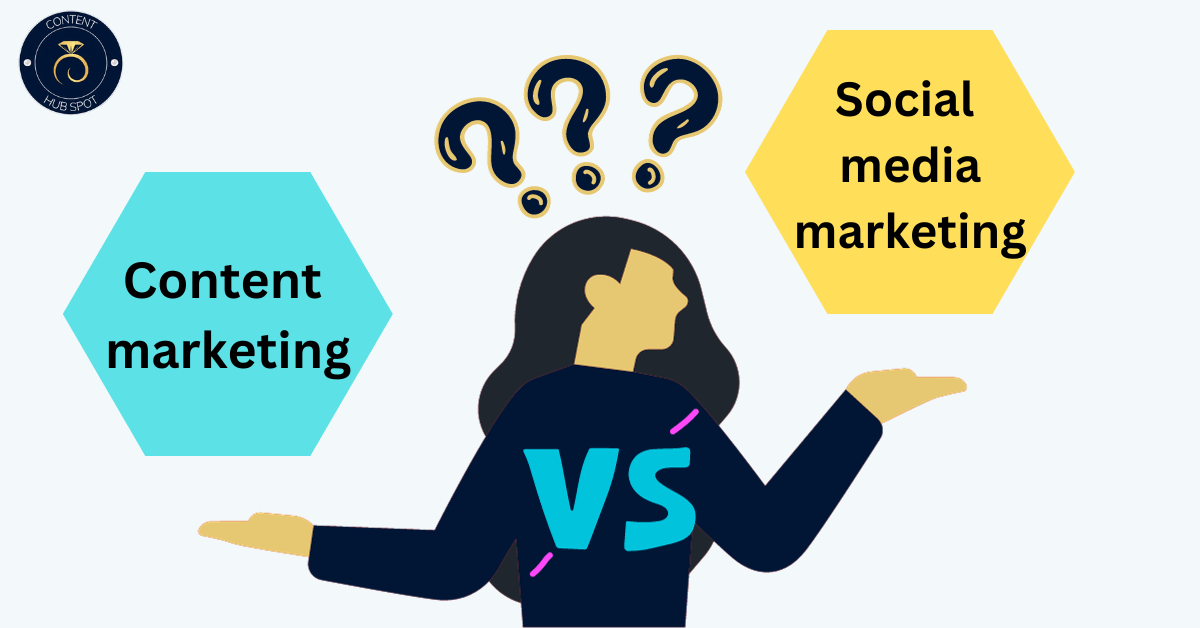
Once upon a time in the world of the internet, businesses and brands wanted to make friends with the people they wanted to sell things to. They had two special ways to do this: one was called “content marketing,” and the other was “social media marketing.“ Now, you might think these two friends are very similar, but they actually have their own superpowers. In this article, “Best Comparison: Content vs. Social Media Marketing in 2023” we’ll delve into the differences between content marketing and social media, helping you understand when and how to use each strategy effectively.
Revealing Distinctions: Content vs. Social Media Marketing
Purpose and Goals
Content Marketing
Content marketing is a strategic approach focused on creating valuable, informative, and relevant content that addresses the needs and interests of your target audience. The primary goal is to provide value, build trust, and establish authority in your industry. Content marketing often involves blog posts, articles, eBooks, infographics, and more.
Social Media Marketing
Social media marketing strategy, on the other hand, centers around using social platforms like Facebook, Twitter, Instagram, and LinkedIn to distribute content, engage with your audience, and build brand awareness. The main objectives of social media marketing are to foster community, drive traffic to your website, and generate leads or sales.
Content Types
Content Marketing
Content marketing typically relies on long-form, in-depth content that educates or entertains your audience. It may include how-to guides, case studies, whitepapers, and comprehensive blog posts. The emphasis is on quality and substance.
Social Media Marketing
Social media content is often short and visually engaging. It includes posts, images, videos, stories, and quick updates. The focus here is on brevity and grabbing the audience’s attention quickly.
Platform and Distribution
Content Marketing
Content marketing content is usually hosted on your website or blog and relies on SEO strategies to rank in search engines. It’s promoted through various channels, including email marketing and social media, to reach a broader audience. To dive more deep must visit our blog post.
Social Media Marketing
Social media content is native to the platform on which it’s shared. It’s distributed directly to your followers and relies heavily on engagement, likes, shares, and comments for visibility.
Timing and Frequency
Content Marketing
Content marketing often follows a consistent publishing schedule with longer intervals between pieces of content. It prioritizes quality over quantity.
Social Media Marketing
Social media requires frequent and timely updates to stay relevant and maintain audience engagement. Multiple posts per day are common on platforms like Twitter and Instagram.
Measurement of Success
Content Marketing
Success in content marketing is measured by metrics such as organic search traffic, lead generation, and conversion rates. It’s a long-term strategy focused on building a lasting online presence.
Social Media Marketing
Social media success is assessed through metrics like likes, shares, comments, click-through rates, and follower growth. It often provides more immediate feedback and can contribute to brand awareness.
Conclusion
content marketing and social media marketing complement each other and can be part of a comprehensive digital marketing strategy. Understanding their differences allows businesses to allocate resources effectively and tailor their approach to their specific goals and target audience. When combined strategically, these two approaches can help businesses build a strong online presence and drive meaningful engagement with their customers.




